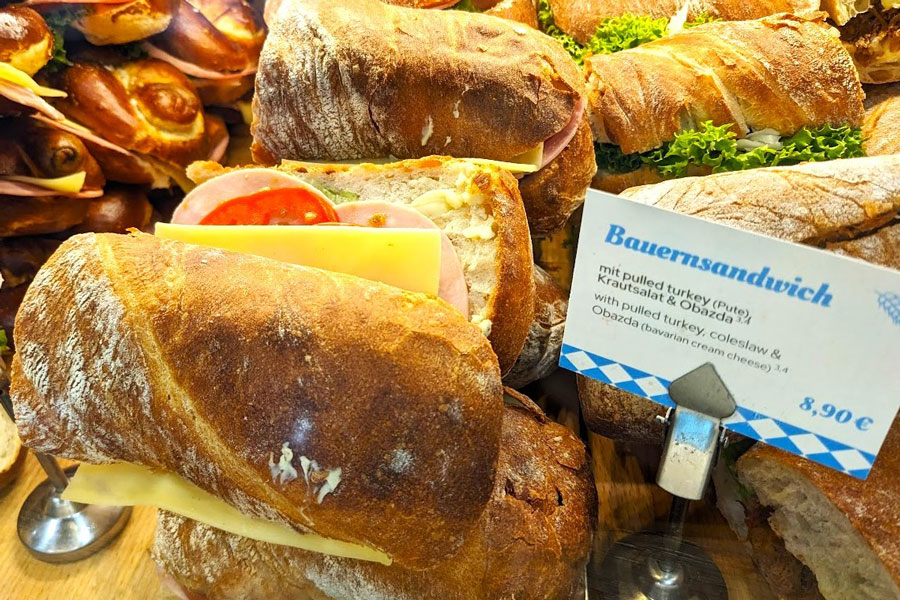
Dubai Airports Partially Resume Limited Flights from Evening of March 2
For those planning their first or a long-awaited international trip this winter since the onset of the pandemic, it’s worth noting that the travel landscape in Europe has changed significantly in recent years. To avoid being perplexed and to make your trip more enjoyable, here’s some advice.
Please understand that the author has only visited six countries after the pandemic, so this does not necessarily apply to all areas.
Due to the Russia-Ukraine conflict, flights from Japan currently cannot fly over Russia. As a result, flights to Europe typically take a detour via the Canadian side of the Arctic Ocean after Alaska, passing over Greenland on the outward journey, while the return route often goes via Turkey over the Caspian Sea, through Kazakhstan, and over China.
As these are considerably longer than the shortest route, flights now take at least two hours longer than before. A trip to major cities like London or Frankfurt requires at least 12 hours of flight time, with the outward trip often exceeding 15 hours. Europe is now more distant than Mexico. On the bright side, flying over the Arctic for an extended time increases the chances of witnessing the aurora borealis, adding an enjoyable element to the journey. Regardless, it’s wise to plan a trip with plenty of leeway.

Even for tourist spot pricing, a ham sandwich can cost nearly 1,500 yen (photographed by the author)
Anyone with the image of spending yen to buy cheaper local brands in the past should brace themselves. For instance, the author was shocked to find that a 500ml Coke costs 3.5 euros (560 yen with an exchange rate of 160 yen to the euro) in central Rome. While you can find it for 2 euros (320 yen) at a cheaper supermarket, airport prices are around 5 euros (800 yen). Expect to pay about 2,000 yen for a McDonald’s meal set. Though the weak yen is part of the reason, the author didn’t feel this kind of price gap even during previous periods of similarly low yen value. The current high prices result from a global increase in living costs.
For example, if inflation is 3% and persists for 30 years, prices will increase by more than 2.4 times. Considering the years of even higher inflation in Europe, it makes sense that price tags now appear more than double what they used to be. The inflation following the pandemic has accelerated even more, with countries like the UK experiencing over 10% inflation in just one year, so such prices should not come as a shock. Although using supermarkets strategically or enjoying relatively cheaper beer in certain countries can mitigate costs, the rising living expenses in Japan pale in comparison to what’s seen worldwide.
First off, upon arrival at the airport, if you can’t use a credit card with touch payment, Apple Pay, or Google Pay, you’re in trouble. Vending machines and paid restrooms also require a credit card, and some small convenience stores are cashless-only. Exchanging cash is largely unnecessary now. During a three-week stay, the author only needed cash when throwing coins into the Trevi Fountain.
Touching a credit card directly to the ticket gate is a practice only recently introduced in Japan, but it’s already the norm in major cities. There’s no longer the need to buy a prepaid card specific to the area every time you want to take a bus or subway, which is quite convenient.
Many might think it’s sufficient if they can send photos back to Japan using hotel Wi-Fi, but that approach no longer supports efficient travel. As mentioned later, services like Google Maps and booking tourist attractions require connectivity outdoors, leaving you without access to a host of conveniences.
Renting a mobile router or purchasing a SIM card isn’t the only options anymore; with the increase in choices like roaming services and eSIM, you can pick the best option based on effort and cost. It’s advisable not to skimp and secure a high-speed communication environment for your trip. Note that the free Wi-Fi provided by hotels might have high speeds but often comes with weak security, which is a consideration to bear in mind.
For example, even if you don’t understand the language at all, searching for your destination on Google Maps will tell you which bus line to take and at which stop to get off. With ride-sharing services, after registering your destination and agreeing to the price, you can travel to your destination worry-free. Using a translation app to photograph a restaurant’s menu will convert it to Japanese, and reading an art gallery’s painting descriptions takes only seconds.
While accuracy and speed may need to be supplemented mentally, it is now possible to have explanations by museum guides and theme park personnel translated on the fly. Let’s fully embrace the benefits of digital devices.
After the pandemic, many tourist attractions have implemented visitor number restrictions, but once you’re inside the previously crowded museums, you can enjoy a more relaxed viewing experience. However, with web reservations and time-specific tickets becoming standard, advance purchase is a must. There are still ticket offices, but since they prioritize reservations, expect long lines. Also, arriving on-site without a pre-booked ticket risks finding out that all tickets for the day are sold out, ultimately leaving you unable to see anything before returning home.
Check each facility’s website or use apps that consolidate ticket information for different countries and regions. Even if direct-sale tickets are sold out, you might still get a chance to enter by joining a local tour still offering tickets.
Many travelers may want to forget the notion of time and enjoy shopping or entertainment late into the night while abroad. However, the number of stores operating late has decreased in many countries.
This trend is a result of changes in lifestyle due to the pandemic, sustainability, and energy strategies, but the increasing cost of labor also plays a significant role. With hourly wages at 3,000 yen and doubled night allowances in some countries, it’s becoming difficult for businesses to justify nighttime operations.
Even pubs in the UK are closing their signs before midnight, so don’t assume you can still find late-night supermarkets or hunt for fast food snacks as you might in Japan. It’s also common for shops to be closed on Sundays and public holidays, so pay attention to opening times.
It’s safe to assume that restrooms inside paid facilities are free, while others charge a fee. Paid restrooms might now support cashless payments, and some cafes and fast food outlets will often include restroom passwords or barcodes on receipts, so carrying coins for such use is no longer necessary. There are fewer department stores and large malls in Europe, and for some reason, the Japanese always seem to be looking for a bathroom, so especially if traveling with companions, it’s a good idea to start each day with a plan for scheduled stops, incorporating tourist attractions and restaurants into your itinerary.
The use of cash has diminished significantly, leading to regions where tips are no longer accepted in hotels and restaurants. The lack of a tipping culture in Japan may be due to tax authorities disliking business owners losing control over employees’ income, but similar reasoning has led to changes in Europe too. Tips are increasingly included in prices or added as a separate service charge.
Of course, if you receive an extraordinary service or dine at an upscale restaurant, it’s appropriate to tip generously, but otherwise, counting cash with a calculator in hand has become less common than before.
While translation apps facilitate conversation, it’s worth noting that people have also changed. Inbound tourism has increased internationally, bringing travelers from a wider range of countries, making English more commonly understood and even the hesitant Japanese English is now more often accommodated.
This change may have contributed to the apparently kinder treatment from the locals compared to the past. Actively engaging in communication can greatly enhance the joy of your travels. However, always be wary of pickpocketing and scams, which are as prevalent as ever worldwide.